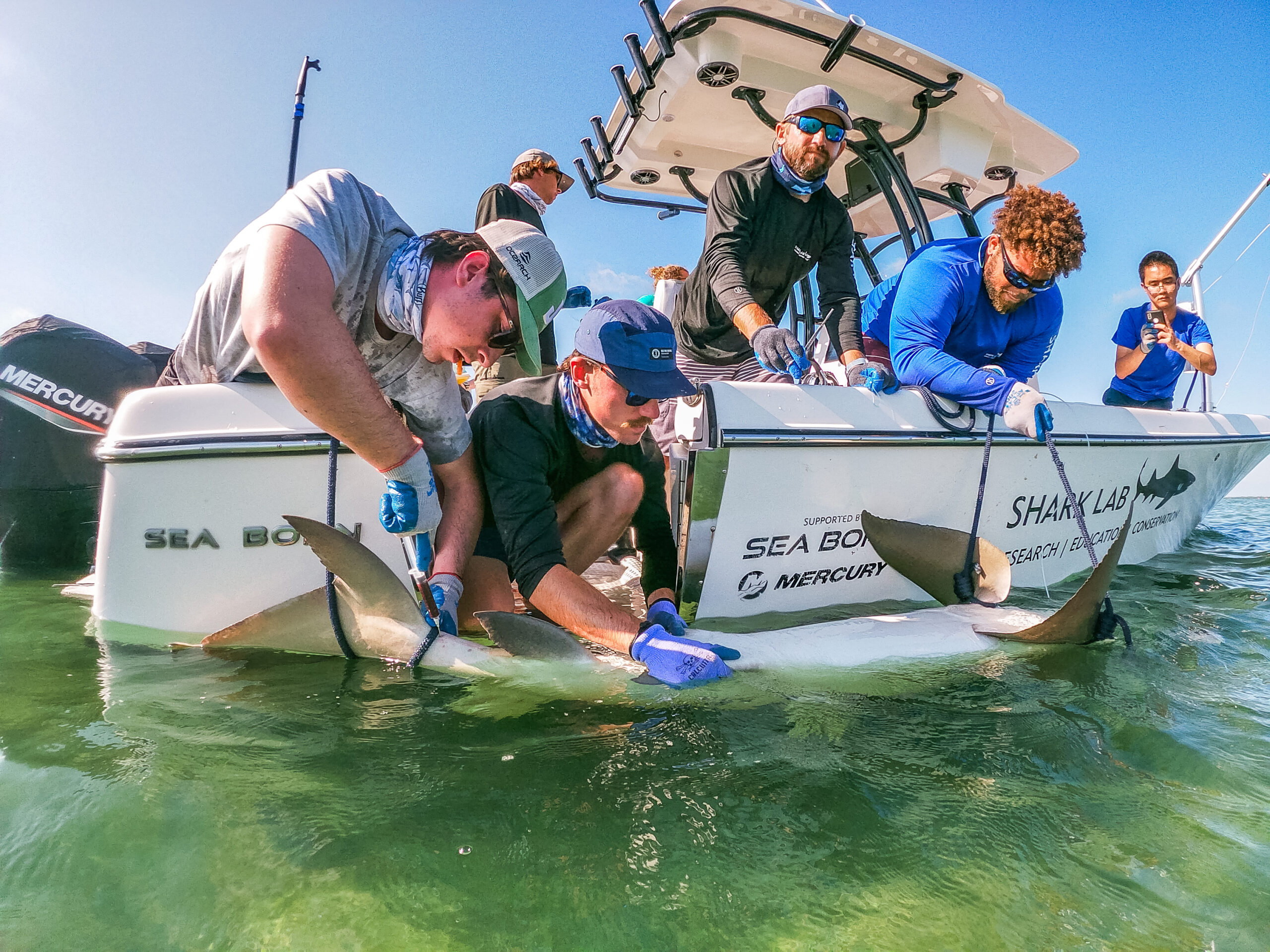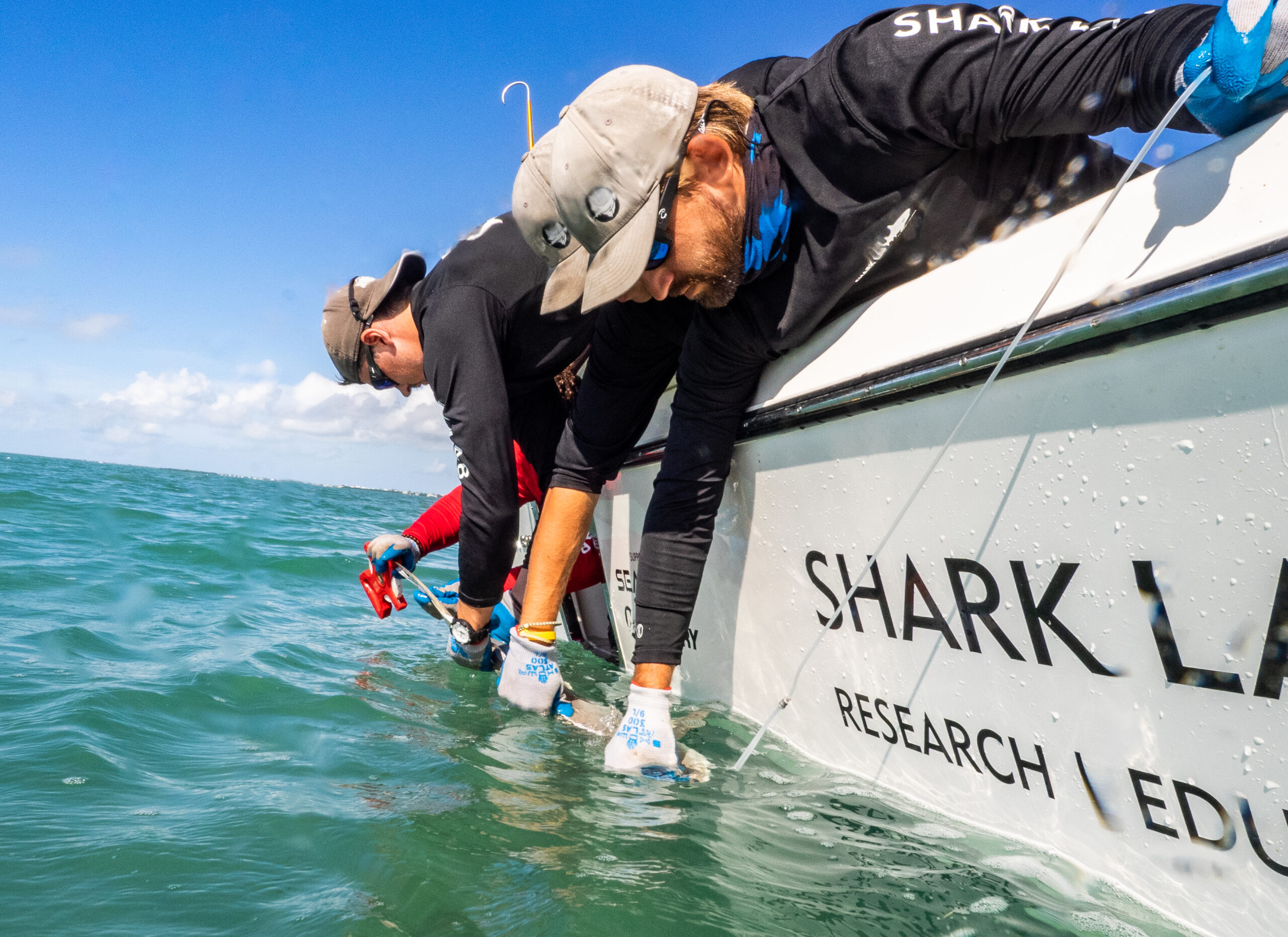The value of long-term datasets for studying sharks
A primary mission of the Bimini Biological Field Station Foundation (Bimini Shark Lab) is to provide field-based skills to the next generation of marine conservationists and scientists. As part of this mission, the Shark Lab has welcomed thousands of students to experience the unique ecosystems around Bimini. These students have been instrumental in contributing towards one of the world’s largest datasets and biological sample collections for elasmobranchs, which have helped to advance the overall understanding of life history, behavior, abundance trends and movement of sharks and rays.
When Dr. Samuel Gruber ‘Doc’ first began researching the sharks of Bimini in the early-1980’s many of our current technologies and analyses were not yet a consideration. For example, at that time genetic analysis was still being sparsely used in human research and forensics. The costs of the analysis were often prohibitive, and it seemed like a stretch that it could be used for sharks which at the time were not a high conservation priority. Fortunately, Doc had the foresight to collect as much data and as many biological samples for sharks as possible. Today, the genetic analysis of the fin clips from lemon sharks has now formed one of the largest and most comprehensive genetic datasets for a large marine vertebrate. This data has significantly advanced scientific understanding for life history traits of sharks, including documenting multiple paternity, natal philopatry, and heritability of traits. This information continues to build the basis for further research and to apply these findings to the broader shark science.

The Bimini Shark Lab team collects data from a lemon shark, Negaprion brevirostris. Crew members work quickly to simultaneously collect morphometric data, biological samples such as blood, and to deploy an internal tracking transmitter. Photo © Baylie Fadool
Over the past 4 decades the Bimini Biological Field Station, Shark Lab, has conducted research with a collaborative approach in mind, with the belief that cooperation is the most effective means to advance science and widespread conservation. During all research activities, the health and safety of the animals and researchers is paramount. However, if time and conditions permit, the Shark Lab team attempts to collect as much data (morphometric, tagging, etc.) and biological samples (fin, muscle, blood, etc.) as reasonably possible while limiting the stress to the animal. Field research is time-intensive and financially costly, therefore the ability to simultaneously accomplish several goals allows research groups to be more efficient with time and funding. The Shark Lab’s perspective is that any additional data or samples collected during ongoing research projects may alleviate the need of other research groups to unnecessarily duplicate efforts. Samples from Shark Lab research are shared with a network of collaborators, or securely stored for future analysis.

The Bimini Shark Lab team collects data from a blacknose shark, Carcharhinus acronotus. Photo © Baylie Fadool
Often times research and conservation efforts are reactionary to emerging concerns, which limits the availability of all important ‘baseline’ datasets. In addition, researchers do not always know how advances in analytical tools and techniques may be used in the future and therefore what samples or information are the most pressing to collect. As such, collecting as much data and biological samples as possible during research is important as it can provide essential information for future research. For example, to investigate how climate change or habitat destruction is causing long-term changes in ecology or life history traits, it is necessary to have data across multiple decades. This is beyond the scope of any single short-term research project and requires the collaborative approach of many researchers. It is essential that researchers keep these long-term conservation efforts in mind, and do not only focus on the short-term objectives. The challenges facing marine conservation in future decades will require a large collaborative approach and the willingness of researchers to combine efforts for the greater good.
